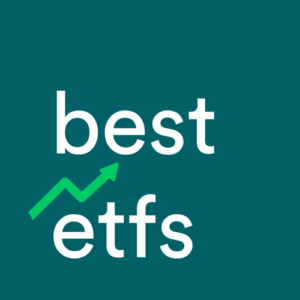What do the ILC and QOZ ETFs do?
The iShares ILC ETF provides exposure to the largest 20 Australian stocks, giving you targeted exposure to Australian blue-chip companies. This is a low-cost way to access top Australian companies through a single fund.
The BetaShares QOZ ETF provides exposure to a ‘fundamentally weighted’ index of 200 large Australian shares. This ETF focuses on weighting the portfolio with a focus on ‘economic importance’ rather than market capitalisation, while also aiming to outperform traditional market-cap weighted indices.
If you like the look of the ILC ETF, check out our free ILC ETF report.
One of the easy ways we compare ETFs such as QOZ and ILC at Best ETFs and Rask Australia is by analysing the fees and costs of an ETF. Internally, we score ETFs based on management fees, plus indirect costs and we take into account the buy-sell spread. We like to look at the ‘all-in’ costs of buying and owning an ETF.
We’ll keep it easy and just study the fees. Based on our data for December 2021, the ILC ETF has a management expense ratio (MER) of 0.24% while the QOZ ETF’s yearly fee was 0.40%.So ILC comes out on top. That said, a more useful metric to know is the fee quartiles that these ETFs find themselves in (note: quartile 1 is best). For example, any ETF which has a fee below 0.3% would be considered in our first (best) quartile.
How do they perform?
Performance matters. Keep in mind, performance isn’t everything — and past performance is not indicative of future performance. It’s just one part of a much bigger picture. The reason we say performance is not everything is because of volatility of financial markets and the economy from one year to the next. Some ETFs and funds can put in a solid return one year just to generate lacking returns the next time around. That’s why we prefer three-year or seven-year track records over one-year track records. It can smooth out the temporary performances caused by external factors. Both ETFs have achieved our three-year performance hurdle. As of December 2021, the ILC ETF had an average annual return of 14.08%. During the same time, the QOZ ETF returned 13.13%.
Finally, at Best ETFs Australia, we apply a rating to the ETF issuer or provider. That is, the company that starts and is responsible for operating the ETF on the ASX. There are too many considerations that go into our scoring to detail here. The issuer of ILC is iShares. iShares ranks highly for our scores of ETF providers and issuers in Australia. We consider iShares to be among the best ETF providers in Australia and globally.
Best ETFs Takeaway
Did you know we have free reports? View our ASX ILC review and ASX QOZ review today.
In summary, the ILC ETF rates higher for our internal scoring methodology but not by much compared to QOZ.
Please, keep in mind, there is much more to selecting a good ETF. That’s why you should now use these skills to find the best ETF you can. If you want the name of our team’s top ETF pick for 2022, keep reading…





